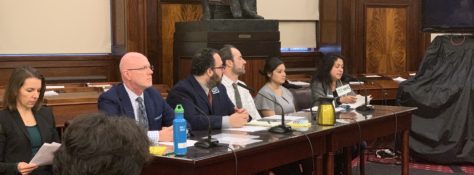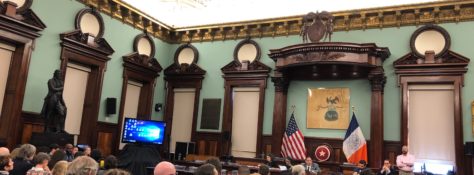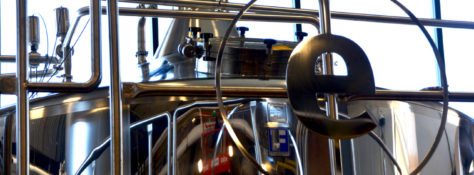News
At a City Council Environmental Protection Committee hearing last week, NYLCV testified in support of groundbreaking legislation that would make New York City the first in the world to set carbon emissions standards for buildings, which generate 70% of greenhouse gases in the City.
Learn MoreNews
The City Council’s Committee on Environmental Protection held a hearing last week on legislation that would set greenhouse gas emissions for buildings over 25,000 square feet.
Learn MoreNews
Congestion pricing can be much more than just a subway-fixing fund. It could also enable the electrification of the city’s entire bus fleet – a move that would save fuel costs, reduce the city’s carbon emissions and improve air quality for millions of New Yorkers that live, work and learn along the city’s maze of bus routes.
Learn MoreNews
New York is combating a food waste crisis, with many establishments throwing away countless tons of food each day. This issue is exacerbated during the holiday season. Fortunately, the restaurant industry is helping New Yorkers reduce this through a variety of practices.
Learn MoreNews
Film and TV production can be glamorous and it plays an important role in our local economy. It can also be wasteful, using fuel-guzzling generators, bulldozing sets and filling landfills with props and other leftovers from film shoots. Now, the industry that brought Technicolor to the world is institutionalizing sustainable practices on multiple fronts.
Learn MoreNews
As we all know, traditional pesticides contain toxic chemicals that are harmful to people and our environment. One of the more interesting sustainable alternatives we recently learned about is the small and colorful ladybug.
Learn MoreNews
Nature has always had a part in the world of art. Nowadays, art has become a method of spreading awareness of climate change through all senses rather than simply reading about its impact.
Learn MoreNews
With 400 breweries statewide, beer is a big business in the State of New York. However, climate change is already affecting brewers. The Oxford Companion to Beer notes that the price of ingredients is “beginning to rise as the agriculture industry is affected by changing weather patterns.” Some brewers have been fighting climate change for decades.
Learn More


